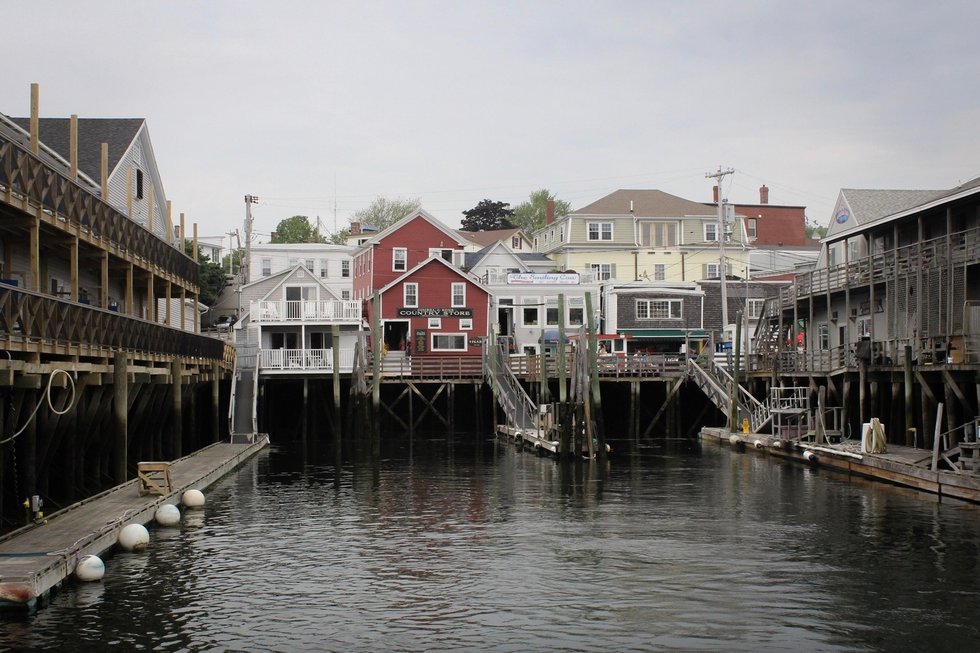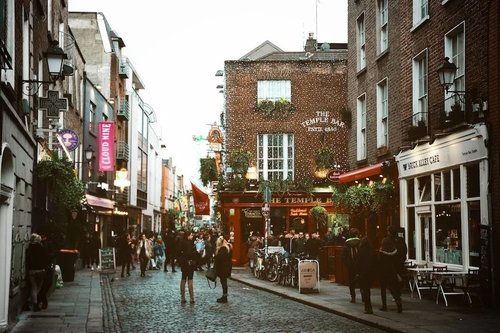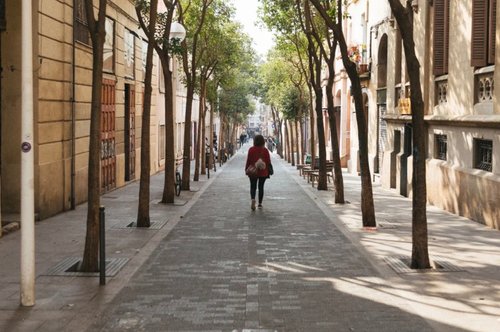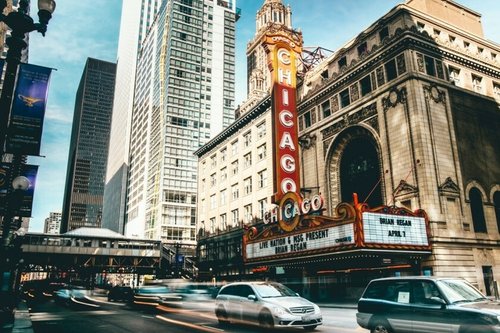The 2023 guide to living and working in Portland, Maine
Mar 21, 2023
8 mins


Journalist and translator based in Paris, France.
Speckled with lobster shacks and brick townhouses, Portland, Maine is rising as New England’s coolest hub. The absence of traffic, abundance of nature and a phenomenal food scene are luring Bostonians and New Yorkers up north. Morning commutes behind bumpers are replaced by ocean views, while workdays end with live music shows, walks on the beach or cross-country skiing. But the city’s recent popularity has caused a serious housing crisis, and making ends meet is getting harder for many workers. So for everyone wondering — should I move to Portland? — here’s a look at the ins and outs of this up-and-coming destination.
The Basics
This rugged, forest-laden peninsula was known as Machigonne, or “great neck,” to the Algonquins who called it home for over 11 millenia. Then, 390 years ago, two Englishmen decided to install themselves on its rocky shores. Centuries of colonization, industrialization and maritime history transformed their settlement into a port city aptly named Portland. Now the most populated city in a large, rural state, it enjoys the snowy winters, warm summers, wild beaches, forest trails, proximity to mountains and world-renowned autumn foliage that make Maine a vacation hotspot.
Portland counts over 68,000 inhabitants within its 21 square miles, but the post-COVID influx of new residents is changing that statistic rapidly. This year, US News & World Report put Portland in first place on the list of the 25 Best Places to Live on the East Coast, and in 8th on the list of best places to live in the USA. But what’s it like to work there?
The Job Market
Unemployment in Portland is remarkably low, currently at a rate of 2.2% (compared to a national rate of 3.4%). According to the last census, the city’s median household income was $66,019. Keep in mind, however, this number dates to 2021, before inflation, a flood of new residents and a recent boost in the state’s minimum wage. Nonetheless, the number of jobs available in Maine is at an all time high, clocking in at 648,000 this January.
The chances of finding a job are particularly good in the following five sectors, as Maine’s government is investing in these industries as part of its ten-year economic development strategy:
- Life sciences - Portland is less than a two-hour drive from Boston, America’s epicenter of medicine and biotechnology. Maine provides many companies in these fields with cheaper headquarters, and they are now some of Portland’s major employers.
- Forest products - Maine boasts the largest contiguous forest east of the Mississippi, which has been an important part of the state’s economy since its birth. In 2021, Governor Janet Mills pledged to invest $20 million in this sector over a two-year period.
- Marine aquaculture - Home to 90% of America’s lobster supply, Maine has a particularly robust economy around fishing, land-based aquaculture, ocean sustainability and other aquatic research. And the state’s Aquaculture Innovation Center is located in Portland.
- Food and agriculture - Not only does Portland have one of the nation’s highest number of restaurants per capita, it’s surrounded by farmland. Twenty million dollars have been allotted to boosting the local food infrastructure, benefiting everyone from farmers to restaurant owners.
- Outdoor recreation - From outdoor gear manufacturers like Maine’s famous LL Bean to ski stations, this sector accounts for 4.5% of the state’s economy — over twice as much as the national share.
The biggest employer in the state is Maine Health, and Portland harbors multiple hospitals. The city also has a hefty tourism industry, counting 11,500 jobs. The area attracts 5.4 million visitors every year, whose spending has reached $682 million.
While Portland’s job market looks good overall, it has its dark sides. Teachers are leaving Maine in droves, and a 2022 survey found it the 8th worst state in the US for their profession. The city’s municipal employees are working overtime due to severe staff shortages, and state workers recently filed a complaint against labor law violations. Those who have it worst, however, are Portland’s foreign migrants. By some estimates, thousands of refugees settle in this asylum city every year. While they could fill some of the numerous vacant positions, the wait time for work eligibility after filing an asylum application is at least 150 days, which contributes to the high levels of homelessness among refugees.
The Work Culture
The quaint city of Portland certainly isn’t the rat race of a big metropolis, nor does it suffer from the brain drain of many other small cities. The labor force seems to be a mix of career-oriented and work-to-live mentalities. Suzanne Hearn, the production manager at a local coffee roasting company called Tandem, says the Portland restaurant scene suits her lifestyle of finding “jobs that I enjoy doing, but that mostly allow me to do the other things that I love.” She describes packing a bathing suit in her bag before heading to work in the summer, as her after work hours are reserved for the beach. Deenah Lewy, on the other hand, is drawing on Portland’s high level of immigrants to further her career teaching English as a second language. Lewy, who moved to Portland from NYC, notes there is certainly “a weekday culture of getting out and doing things.”
Labor laws
Portland’s minimum wage is $14 per hour, almost double the federal minimum wage of $7.25 per hour. Service employees who earn over $175 per month in tips, however, make $7 per hour. For most Maine employees, the workweek is 40 hours and overtime can’t exceed 80 hours in a consecutive two-week period (information on how Maine calculates overtime pay can be found here). One hour of paid leave is earned for every 40 hours an employee works, and can legally go up to 40 hours per year. What’s more, a state law giving employees up to 12 weeks of paid family leave is currently in the works.
Commuting
While Portland has a bus system, there is no subway. Those living and working close to the city center tend to walk: “I’m able to just walk like 10,15 minutes and be right downtown,” says Hearn. Many workers with a slightly longer commute tend to bike — even when it’s freezing. “Mainers are pretty hardy and like to get out there even in the winter,” explains Lewy, whose partner not only bikes to work on a local island, but also takes a ferry. There is, however, a dominant car culture, and Lewy preferred biking in NYC where drivers were more used to sharing the road with bikers.
Portland also has its own Amtrack station and a jetport, making it easy for employees who frequently visit company headquarters in places like Boston, NYC, Pittsburgh or even Tampa. It takes under two hours to drive to Boston and five hours to either Montreal or NYC.
Remote work
While Portland made last place on the 2023 list Best US Cities for Digital Nomads due to its low count of wifi hotspots and relatively high cost of rent, remote work is definitely possible in numerous cafes and coworking spaces.
The Housing Crisis
It’s the first thing any citizen of Portland will bring up if you ask about living in their city. “The housing market is absolutely insane in this whole area. Not even just Portland but the whole of Southern Maine is getting really expensive,” explains Lewy, who feels lucky to have moved to Portland six months before the pandemic hit. Since 2020, New England’s northern states of Vermont, New Hampshire and Maine have welcomed over 50,000 new inhabitants and are struggling to keep up with the infrastructure demands. According to a 2022 report by the real estate brokerage corporation Redfin, Portland is the top moving destination for Bostonians, who rank fifth in the country for number of homebuyers leaving a metro area. In other words, that’s a lot of potential new Portlanders. Compounded with the refugee crisis — Portland has already accepted 756 new arrivals from sub-Saharan Africa since January — it’s easy to see why the average price of a home has gone up by 10% in the past year.
In Portland, the median rent for a one-bedroom apartment is around $1,777. Lewy finds this rental market almost worse than NYC: “There’s so many more opportunities in New York, whereas here it’s such a limited space.”
The Lifestyle
Eight years ago, Hearn was looking to move out of the small city of Portsmouth, New Hampshire. “I felt like I knew every single person in town and couldn’t go anywhere without seeing someone I knew,” she says. “Which, most of the time I like and I think is charming, and it makes me feel like I’m a part of the community. But sometimes it’s nice to be able to know that you can go somewhere and just be left alone.” Hearn eventually landed in Portland and found it was exactly what she was looking for. If you ask her what’s going on about town, she’ll answer with a litany of adventures including burlesque shows, wine tastings, boutique shopping, live concerts, aerial yoga classes and bicycle repair workshops.
Population and politics
According to the New York Times, Maine is the “only state in the country where the median age declined from 2020 to 2021.” These young newcomers are mostly flocking to Portland, a very liberal city surrounded by more conservative, rural counties. Hearn compares it to Austin vs. Texas, while Lewy compares it to NYC vs. New York state. So while LGBTQ+ friendly venues are very common, Hearn recalls how one cafe’s rainbow flag was repeatedly torn down. Throughout the state, however, abortions are allowed up to 24-28 weeks (with exceptions for severe diagnoses), and there is no waiting period. Maine has also legalized recreational cannabis, which can easily be found in Portland. The city is remarkably family-friendly, complete with a children’s museum, and a large number of residents take long nature walks with their dogs.
Lewy and Hearn both note, however, that locals can display the famous New England stand-offishness that may bother newcomers from other regions, but will make most Bostonians feel right at home. And while demographics may have changed since the surge of newcomers, the last census identified 83% of Portland’s population as white.
Food scene
Like many residents, Hearn works in the food and service industry, which is one of Portland’s biggest claims to fame. Maine has the most breweries per capita in the US so craft beer is abundant. Here you’ll find some of the country’s best fish and seafood, while the farmers market taps into fresh produce from the many local farms. “Food in general is a really big deal in Maine,” says Lewy. “There’s an epic farm community and even people who aren’t in the industry care about supporting farms, getting fresh food or having their own gardens.” The 2023 James Beard awards counts 11 semi-finalists from Maine, most of whom are restaurants or chefs from Portland. Hip restaurants can get pricey, however, and the bars close by 1 AM.
The great outdoors
The area is more than the pictures of lighthouses perched on rocky coasts that Google image would have you believe (although Greater Portland is home to seven lighthouses). Beaches range from sandy nooks hidden by the forest to piers with amusement parks. Lewy reveals she discovered cross-country skiing since moving to Portland, and that she often explores nearby forest trails. She also notes the popularity of skiing and summer concerts in the open air, as well as other physical activities like Portland’s public bath house and adult intramural sports.
Why should you move to Portland, Maine?
Because the ocean is gorgeous, the woods are serene, the city is adorable and, according to Suzanne Hearn, residents can find “a little bit of everything.”
Why shouldn’t you move to Portland, Maine?
Because the winter is freezing, the parties don’t last all night, New Englanders are cranky and, in the words of Deenah Lewy, “There’s no goddamn room.”
Photo: Unsplash
Follow Welcome to the Jungle on Facebook on LinkedIn and on Instagram and subscribe to our newsletter to get our latest articles every day!

More inspiration: Relocate for work

Fancy moving to Dublin, Ireland to work? Here’s what you can expect
Discover what makes Ireland's capital a top destination for professionals worldwide.
Apr 16, 2024

Moving to NYC for work? Here's what you need to consider
What is the reality of living and working in The Big Apple? The truth has to lie somewhere between Sex and the City and Taxi Driver.
Jan 10, 2024

Fact or fiction: graduate programs in Europe are worth it
As soaring US tuition cost has caused a debt crisis, Americans are turning their eyes to graduate schools in Europe...
Apr 12, 2023

Moving to the country in a post-pandemic world
As remote and flexible work edges toward ubiquity, roughly half of Americans would already prefer a rural area to a city or suburb
Feb 13, 2023

Working in Chicago
Thinking about relocating to the Windy City? Two residents share their experience and insights
Dec 07, 2022
The newsletter that does the job
Want to keep up with the latest articles? Twice a week you can receive stories, jobs, and tips in your inbox.

Looking for your next job?
Over 200,000 people have found a job with Welcome to the Jungle.
Explore jobs